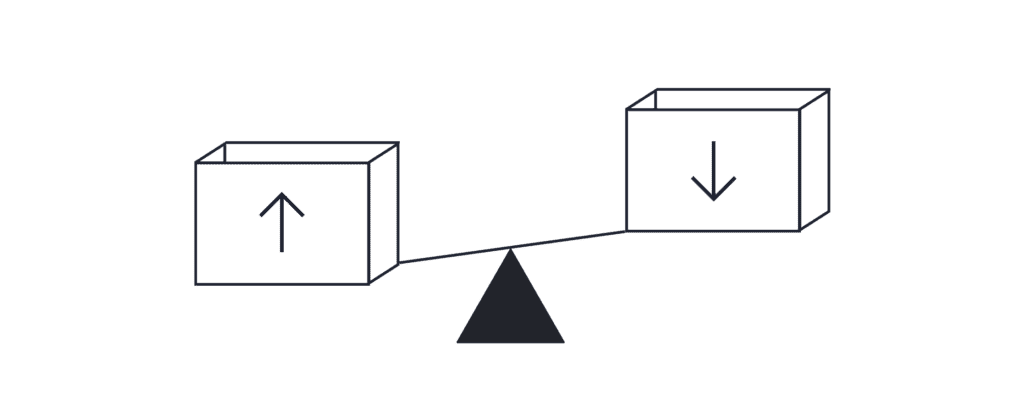Productized Services: How Custom Digital Services Firms Can Adopt Them

Many custom digital services firms are looking for a simplified way to experience higher margins and obtain predictable, repeatable work.
The answer lies in productized services, which allow you to serve more clients without spending a ton of time determining the scope, timing, pricing, and team resources required for each project. In this guide, we discuss productized services, why your firm should adopt them, and how to get started.
Key Takeaways:
- Productized services are standardized and repeatable packaged offerings of digital services that firms can resell to clients.
- Custom digital services firms can productize their services by developing value-add services that are standardized, predictable, and repeatable or by productizing their inputs.
- Firms should ask whether the value of a project is in the inputs or outputs before productizing services.
- The benefits of productized services include higher margins, service optimization, and increased value for clients.
- An example case study demonstrates how a custom creative agency successfully productized its inputs by focusing on its methodology and principles.
Table of Contents:
- What are productized services?
- How to productize your services as a custom firm
- Start here: Is the value in your inputs or outputs?
- Business benefits of productized services
What are productized services?
Productized services are packaged service offerings that digital services firms and consultancies can resell in a repeatable, standardized way. These packaged offerings are common in production companies that bundle deliverables and deliver them for a fixed cost on a set timeline using the same roles for each project.
According to Service Performance Insight, a leader in Professional Service Market Research, the use of productized services is a leading indicator of more mature professional services companies. Best-in-class organizations generate nearly 80% of their revenue through productized service offerings.
How do productized services work? For example, a digital marketing agency may have a productized search engine marketing (SEM) package. Every client that chooses this package gets the roughly same thing for around the same price:
- Discovery session
- 3-page documented SEM strategy
- 10 Google Ad campaigns
- A number of campaign management hours
- 1-hour monthly analytics review with campaign refinement
- 30-minute weekly touch base
The agency has run these campaigns so often that it knows precisely what and how long it will take and which roles it will require to deliver the service successfully.
How to productize your services as a custom firm
Unfortunately, it’s a common misconception that custom firms and software development shops can’t productize their services. Clients typically approach these custom shops with high-level business challenges unique to their organizations — situations that almost always make it impossible to standardize and predict what each client will receive in the end.
However, there are opportunities for custom firms and development shops to productize their services to reap the many benefits of doing so. It just requires a new way of thinking.
Step 1 to productized services:
First, custom firms have many opportunities to develop value-add services that are standardized, predictable, and repeatable. Examples could include packages for website security audits or accessibility updates.
This à la carte work is easy, repeatable, and high margin for your firm. The output is always the same, and you can do it really well because you’ve done it so many times before.
Step 2 to productized services:
Then there are the big, challenging, and ambiguous projects. A client has a significant business challenge, and you know your team can solve it using its insights, experience, and unique methods. But you’re not sure what the exact outputs of the project will be.
When your firm doesn’t know the specific deliverables (the outputs) that will result at the project’s end, it needs to productize what it knows will remain the same — the inputs.
Inputs include your firm’s principles, methodology, process, team, tools, and artifacts. These inputs, shaped by how your team thinks and its experience, set you apart from other firms. Custom shops that productize these inputs can scale their differentiated value in ways they haven’t been able to otherwise. As a result, they can market, sell, and deliver their services more consistently and profitably.

Start here: Is the value in the inputs or outputs?
When starting a new project, you should first ask whether the value of the project is in the inputs or outputs. In most cases, it makes sense to have some services productized on their outputs and others on their inputs.
However, you risk becoming commoditized if you only productize your outputs (“You get a new website that includes deliverables X, Y, and Z for $50k.”). Prospects will compare your price and list of deliverables against the other proposals they receive.
If you’re the higher price and haven’t demonstrated why you’re worth it (your unique value), we can almost always guarantee that the prospect will choose the lower-cost firm.
So, how can a firm or custom agency effectively productize its inputs to protect and communicate its differentiated value?
Productizing inputs: An example case study
Let’s consider an example. A global food and drink company approached a custom creative agency for an innovation project to develop a new food brand. All of the other agencies this one was competing against delivered proposals that included project plans with a slew of deliverables.
The creative agency knew it would waste valuable (and expensive) time if it took the same approach. The agency didn’t know, without first going through discovery and an innovation process, what the exact outputs of the project would be. How could they possibly create a project plan and promise specific deliverables?
Instead of following the pack, the creative agency pitched the food and drink company on how their agency works and the methodology it had developed over time, through relevant experience, to help clients navigate innovation.
The agency took the stance that innovation isn’t about following a project plan. It’s about the discovery process, methodology, and principles used to uncover insights to drive the project forward in the right way.
The creative agency won the work. 🏆
The agencies that competed against the creative agency likely went through rounds and rounds of revisions to develop their proposed project plans, deliverables, and price. The time spent ate into their margins, and they didn’t even win the work.
The creative agency, meanwhile, had productized how it approaches innovation projects. It structured its discovery phase and methodology, demonstrated why its team was the right one for the job, and shared what tools it would use to successfully deliver the project.
The agency could then use a similar version of that proposal over and over again with other clients seeking innovation projects.
The agency effectively: saved time, protected their profit margin, demonstrated their unique value, set clear expectations for the client and project team, and ultimately won the work. They also eventually won more high-dollar innovation projects using the same proposal and approach.
Business benefits of productized services

It takes time and thoughtful planning to turn your firm’s inputs into productized services and determine when it makes sense to productize your outputs. But the business benefits you gain justify the effort. Here are just a few of the biggest benefits your agency can expect from productized services.
Higher margins
First, you’ll experience higher margins by spending less time estimating, scoping, and selling work. There’s a lot of upfront work that goes into selling custom projects. Often this requires ongoing discovery sessions with the client to figure out what they are asking the firm to do or build, plus various rounds of estimates and scopes that require collaboration between many internal teams.
If you haven’t productized this phase of the process, you aren’t getting paid for the time, and it’s a margin loss. Firms that standardize their inputs — including the discovery phase — can charge for this time, shorten their sales process, and increase their margins.
For example, instead of spending 4-8 weeks drafting various scopes and estimates and attempting to define the project deliverables (that will almost certainly change by the project’s end), the firm can create standard proposals that showcase their approach and methodology.
Then, they can more quickly close the deal and get paid to do the heavy lifting and discovery.
Service optimization
You’ll also experience optimized service offerings because you can compare them to each other. It’s difficult, if not impossible, for agencies to compare their services against each other when they approach each project as entirely new and custom.
Different teams do the work at different rates, and there’s often a lot of nuance to each project. As a result, comparing the health and margins of each custom project is challenging at best. Firms that productize their services can better compare their projects’ performance against each other because offerings are more defined and repeatable.
For example, let’s say a firm has two productized service offerings. One is a 2-week discovery phase, and the other is a 4-week website audit and security project. When both services are productized, you can compare their profitability, on-time delivery, on-budget delivery, customer demand, and how effectively each leads to additional business.
These insights can inform whether either service needs adjustments or which service the firm might promote more with clients.
Increased value for clients
Productized services lead to greater value for your clients. They allow for more predictable client relationships because you set clear expectations with clients upfront. As a result, your clients understand your approach and methodology because you documented it in detail to sell the work.
Moreover, your team operates more efficiently and effectively because you’ve done the work before, and everyone knows which process to follow. The repeatable nature of productized work leads to on-time and on-budget delivery and happier teams.
Productize your services with Parallax
Are you ready to productize your services? We’d love to show you how Parallax, a professional services automation platform built for digital firms and consultancies, helps our customers launch, run, analyze, and optimize their productized services. Together, we’ll get your firm operating smarter, healthier, and happier. Book a live demo today!
Productized Services FAQs
What is a productized service?
Productized services are packaged service offerings that digital services firms and consultancies can resell in a repeatable, standardized way.
What does it mean to productize a service?
Packaged offerings or services are common in production companies that bundle deliverables and deliver them for a fixed cost on a set timeline using the same roles for each project. For example, a digital marketing agency may have a productized search engine marketing (SEM) package, meaning every client that chooses this package gets roughly the same services for around the same price.
What is a productized business?
Productized businesses shape different processes, skills, ideas, or services into packaged offerings that they then market as a product for sale to their target audiences and buyers.
How do you productize services?
There are two primary ways to productize services. First, firms can develop value-add services that are standardized, predictable, and repeatable, such as packages for website security audits or accessibility updates. These are easy and repeatable, and the output is always the same. Alternatively, if firms don’t know what the specific deliverable will be for a client’s project or business challenge, they can productize the firm’s internal resources, such as principles, methodology, process, team, tools, and artifacts. These shape how the firm’s team thinks and what their experience is, setting the firm apart from competitors.
How does Parallax help digital firms productize their services?
Parallax is a professional services automation platform built for digital firms and consultancies. The platform is designed to help our customers launch, run, analyze, and optimize their productized services by creating streamlined workflows and clean-cut processes that reduce operational friction and keep the focus on service delivery.
